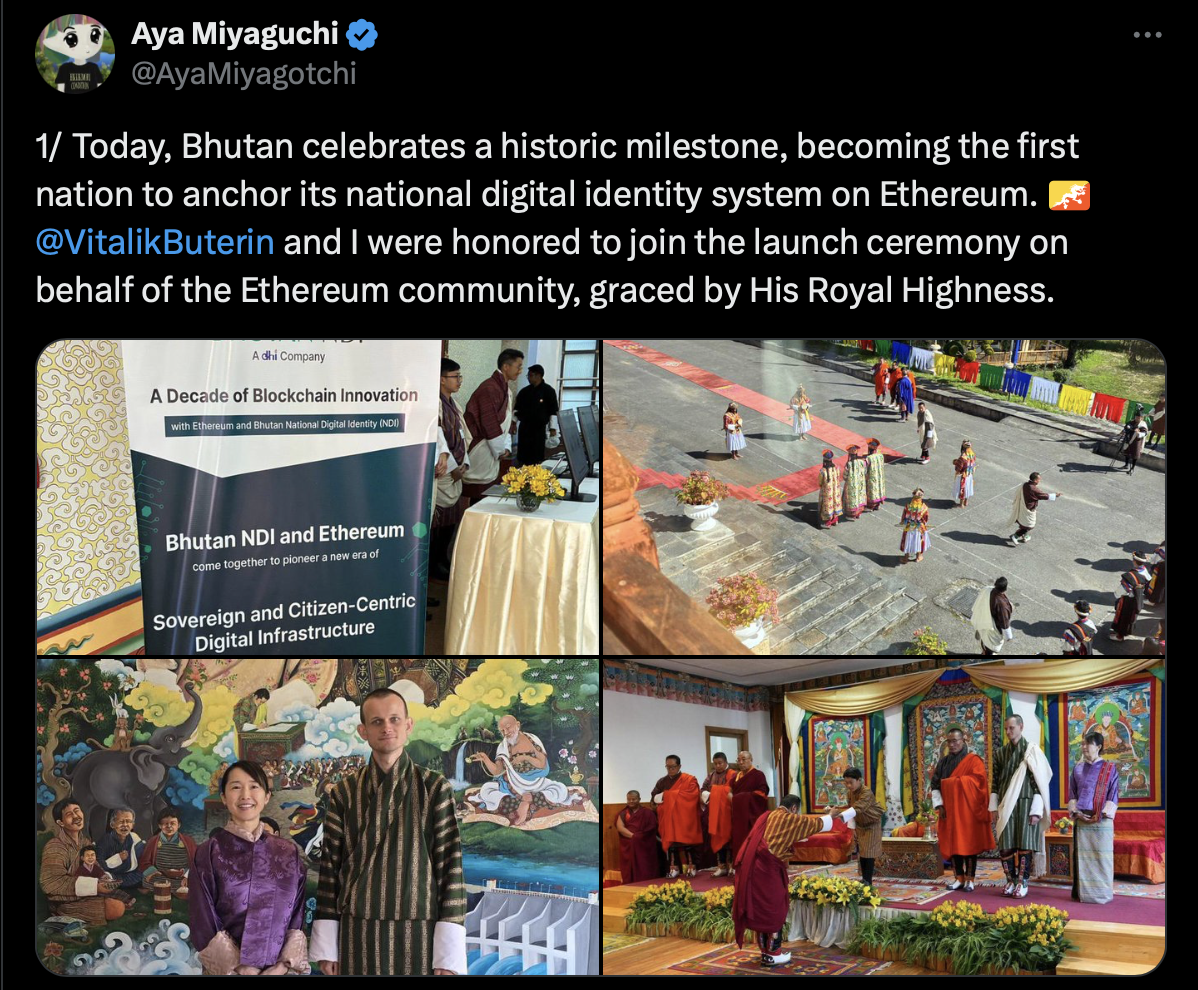Bhutan Ethereum Self-Sovereign ID: National Migration Begins
Bhutan, a South Asian country recognized for its innovative approach to national development, has launched the migration of its self-sovereign ID system from Polygon to Ethereum’s blockchain. This move will empower nearly 800,000 residents to securely verify their identities and access a wide range of government services using Ethereum technology.
Background: Bhutan’s Digital ID Evolution
The decision to migrate the national self-sovereign ID system to Ethereum follows previous deployments on Polygon starting August 2024, and before that on Hyperledger Indy. The migration is part of Bhutan’s broader digital transformation strategy. According to the Cointelegraph report, the integration with Ethereum’s blockchain is complete, although full migration of all resident credentials is expected by the first quarter of 2026.
The announcement ceremony included Ethereum Foundation President Aya Miyaguchi, co-founder Vitalik Buterin, Bhutan’s Prime Minister Tshering Tobgay, and Crown Prince Jigme Namgyel Wangchuk. “It’s deeply inspiring to see a nation commit to empowering its citizens with self-sovereign identity,” Miyaguchi stated via X, calling Bhutan’s Ethereum integration a world-first.

Key Drivers Behind the Ethereum Migration
Blockchain-based national ID systems have long been highlighted as a practical use case for decentralized technology due to the security, transparency, and privacy features inherent in blockchain. Zero-knowledge proofs are expected to play a significant role in ensuring user privacy. Bhutan’s National Digital Identity and GovTech teams, along with members of the nation’s crypto community, significantly contributed to the project.
Only a few other countries have made limited efforts to implement blockchain-based self-sovereign identity solutions, among them Brazil and Vietnam. Bhutan’s decision to fully migrate its ID system places it at the forefront of blockchain adoption for public sector services. See more insights into blockchain’s role in government at Vizi’s cryptocurrency category.
Market Impact and Future Initiatives
Bhutan’s advanced stance on blockchain extends beyond the ID system. The country is also the world’s fifth-largest national Bitcoin holder, with 11,286 Bitcoin valued at approximately $1.31 billion, according to BitBo’s Bitcoin Treasuries data. Bhutan acquires its digital assets primarily through mining operations powered by renewable hydropower from its Himalayan dams.
Furthermore, Bhutan is reportedly exploring additional cryptocurrency initiatives. Notably, Bhutanese officials met with former Binance CEO Changpeng Zhao in late September, though specific outcomes from the meeting have not been made public.

What’s Next for Bhutan’s Digital Infrastructure?
Bhutan’s migration to Ethereum for its self-sovereign ID system is set to complete by early 2026, marking a milestone in public sector blockchain adoption. As the country continues to explore new crypto-related opportunities, its progress will be closely watched by the international blockchain and digital government communities.
Reporting via Cointelegraph.




















